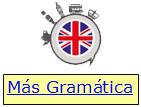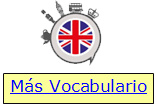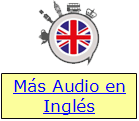|
Old English
“O Romeo, Romeo, wherefore art thou Romeo?” – What does ‘art’ mean? And
what about ‘thou’? We’re talking old English today on this episode of….Aprender
Inglés con Reza y Craig.
Words like Thou, Thy, Thine, Ye, Thee etc
Thou = You – When “you” is the subject of the sentence. “O Romeo, Romeo,
wherefore art thou Romeo?” (‘Art’ is a form of the word “be” and
‘wherefore’ means “what is the purpose of.”)
“O Romeo, Romeo, what is the purpose of you being Romeo?”
The Lord’s Prayer 
Our Father, which art in heaven, (art = be)
Hallowed be thy Name. (thy = your) (hallowed – sagrado, santificado)
Thy Kingdom come. (Thy is used before a consonant sound ‘K’ or ‘N’ – thy
Name)
Thy will be done in earth,
As it is in heaven.
Give us this day our daily bread.
And forgive us our trespasses, (to trespass – entrar ilegalmente, pecar)
As we forgive them that trespass against us.
And lead us not into temptation,
But deliver us from evil.
*(For thine is the kingdom, (thine = your – before a vowel sound)
The power, and the glory,
For ever and ever.)

Amen.
(*Protestants add this part in English)
Thee = You – When “you” is the object of the sentence.
Example: “If thine enemy wrong thee, buy each of his children a drum.” –
Chinese proverb
Ye = You (plural) – Plural form of “you” when addressing a group of
people.
Christmas Carol
O Come All Ye Faithful
Joyful and triumphant,
O come ye, O come ye to Bethlehem.
Come and behold Him,
Born the King of Angels;
O come, let us adore Him,
O come, let us adore Him,

O come, let us adore Him,
Christ the Lord.
“Ye” is also sometimes used to represent an Early Modern English form of
the word “the”, such as in “Ye Olde Shoppe”
Auxiliary verbs in olde English
Wouldst, Couldst, Shouldst, Canst, Hast, Dost, Wilt (Old English, with “Thou”)
= Would, Could, Should, Can, Have, Do, Will
“O if thou knewst how thou thyself dost harm, And dost prejudge thy
bliss, and spoil my rest; Then wouldst thou melt the ice out of thy
breast, And thy relenting heart would kindly warm.”
(From “To Aurora” by William Alexander, 1604.)
Pronunciation of Olde English?
Impossible to say with certainty. Some scholars reckon Shakespeare’s
accent might have sounded a bit like a mixture of a modern Yorkshire,
(Northern) Irish, Midlands (Birmingham area), South-West England and
American accents!
 *Dispones
de más
PODCAST en inglés publicados en los cuadernos anteriores *Dispones
de más
PODCAST en inglés publicados en los cuadernos anteriores
a los que puedes acceder directamente así como al índice de su
contenido. |
|
|
